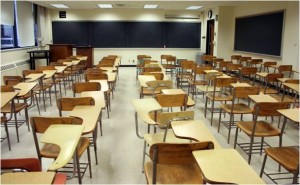My Working Philosphy of Education
 I have hardly begun my journey as an educator, which affords me the luxury of being totally idealistic. Though I have read and heard sad stories from America’s education history, I have yet to be tainted by the system myself (especially since I was home schooled for most of my education). I will take full advantage of that pure idealism in hopes that if I build it up as a fortress now it will stand firm in the face of opposition. On the other hand, I realize that my understanding of what I am about to write will probably change as I begin to teach. Though this paper is technically my “philosophy of education,” I would feel more comfortable calling it my “working philosophy of education.” I will share thoughts from Freire, Kumashiro and Jesus with some of my own ideas in between.
I have hardly begun my journey as an educator, which affords me the luxury of being totally idealistic. Though I have read and heard sad stories from America’s education history, I have yet to be tainted by the system myself (especially since I was home schooled for most of my education). I will take full advantage of that pure idealism in hopes that if I build it up as a fortress now it will stand firm in the face of opposition. On the other hand, I realize that my understanding of what I am about to write will probably change as I begin to teach. Though this paper is technically my “philosophy of education,” I would feel more comfortable calling it my “working philosophy of education.” I will share thoughts from Freire, Kumashiro and Jesus with some of my own ideas in between.
Chapter two from Pedagogy of the Oppressed by Paulo Freire was for me one of the most impactful works of literature I have read in the process of becoming a teacher. A lot of what he said deeply resonated with what is becoming my philosophy of education. He distinguished between the “banking method” of teaching (which is to simply deposit information into students) from “problem-posing” education where:
…the students–no longer docile listeners–are now critical co-investigators in dialogue with the teacher…The role of the problem-posing educator is to create, together with the students, the conditions under which knowledge at the level of the doxa is superseded by true knowledge, at the level of the logos.
Rise of the Planet of the Apes
 Ask anyone who knows me and they will tell you that I love film. Although I do not consider myself a “film junkie,” I do see a fair number of movies a year, ranging from classics to the latest new releases. There is something magical about seeing with my own eyes what someone else has imagined in their head.
Ask anyone who knows me and they will tell you that I love film. Although I do not consider myself a “film junkie,” I do see a fair number of movies a year, ranging from classics to the latest new releases. There is something magical about seeing with my own eyes what someone else has imagined in their head.
I have also come to appreciate that seeing movies is a practical amusement. In times past, books were the major diversion for most people; but in a day and age where people are constantly on the run and busy with family, church, and school commitments, reading seems slow and laborious. A person can see in a couple of hours in a movie what might take them a month to read in a book.

Last 30 Comments